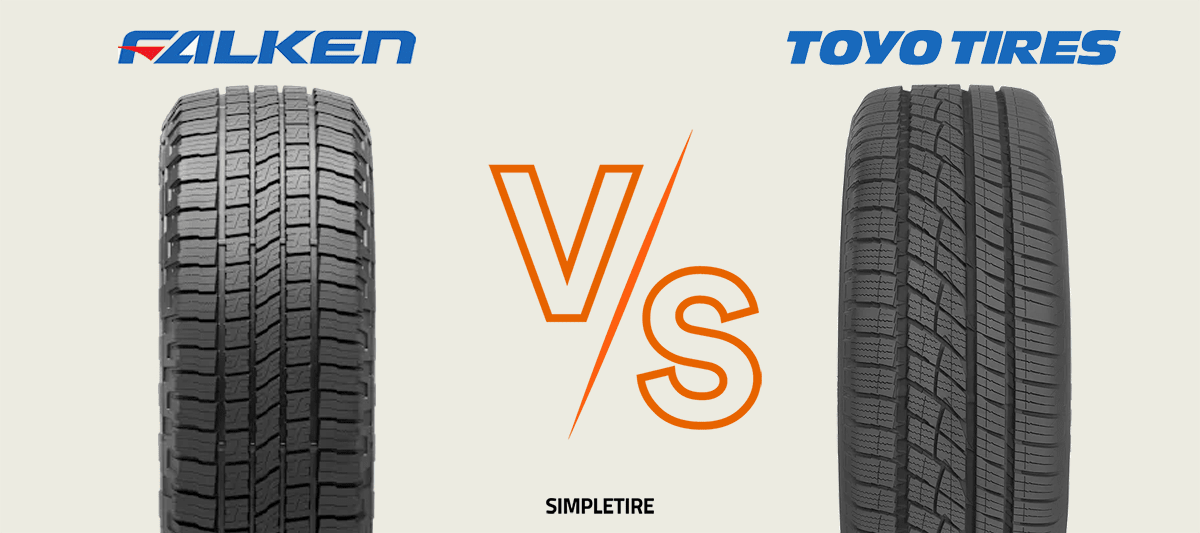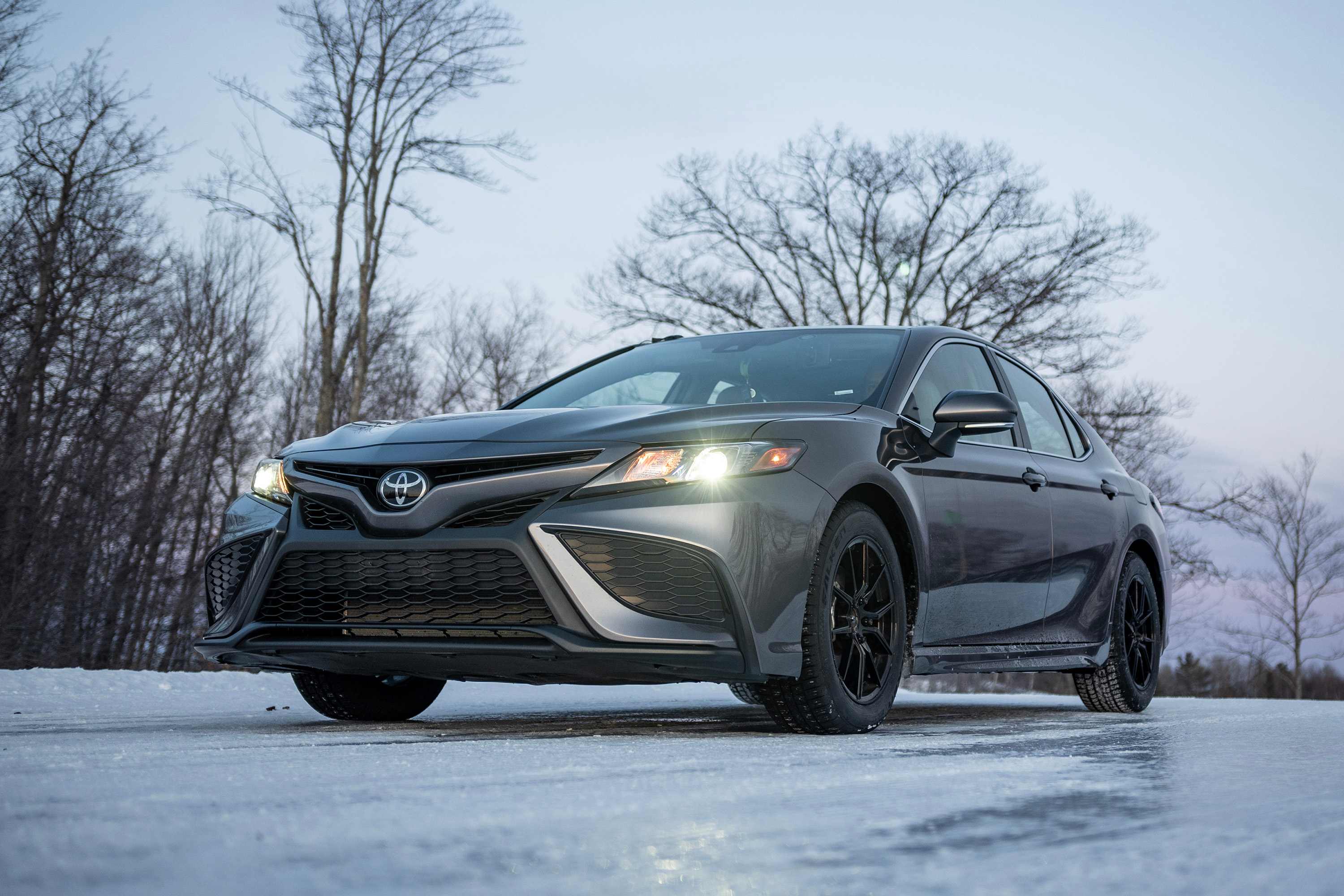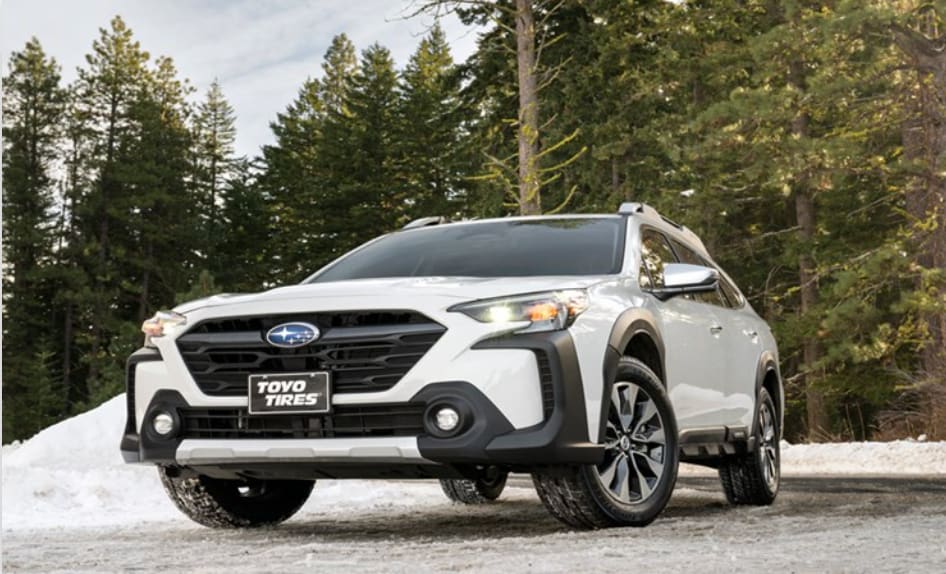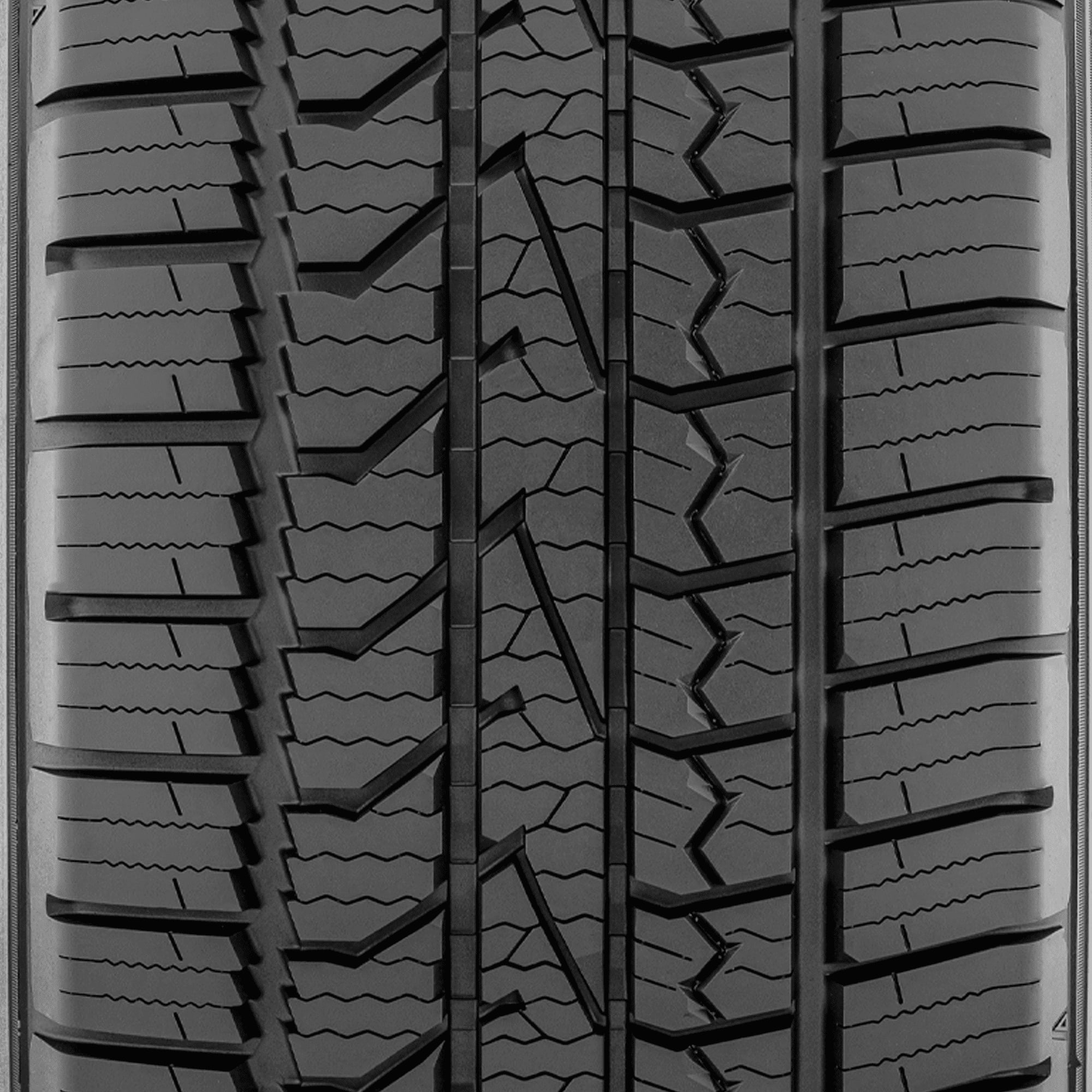Compare
Best price guarantee
Free tire replacement coverage
24/7 roadside assistance
Easy returns

What is it about all-weather tires that makes them so different, anyway? All-weather tires are a fairly recent addition to the tire world; they’re designed to fill a specific need where all-season tires often aren’t quite up to the job. Anyone who’s tried to safely get around when there’s 3-4 inches of snow on the roads will soon find out that most all-season tires are hardly ever able to deliver the kind of dependable traction, braking and control you need (in most cases), so all-weather tires are designed for a decisive edge in winter traction. All-weather tires feature redesigned tread formulations, more aggressive tread patterns, optimized sipe networks, and other features that all have the goal of more consistent traction in snow and slush. In other words, they’re tires that more-or-less split the difference between all-season tires and winter tires, without the headache of having to remove winter tires and store them once temperatures get above 40-45 degrees Fahrenheit.
Are you familiar with SimpleScore? SimpleScore is the system that the SimpleTire team has developed to give our customers a quick at-a-glance idea of a tire’s capabilities and performance. We look at the tire’s spec sheet, reviews, manufacturer info, and other data points, then take that information and calculate it all down to a 1-10 score for the categories of traction, handling, and longevity, as well as an overall average SimpleScore for each tire. For the Falken Aklimate and Toyo Celsius II, the SimpleScore numbers shake out as follows:
- Traction: 8.4
- Handling: 8.6
- Longevity: 9.7
- Overall average SimpleScore: 8.9
Toyo Celsius II:
- Traction: 8.5
- Handling: 8.5
- Longevity: 9.0
- Overall average SimpleScore: 8.7
As you can see, the Falken Aklimate and Toyo Celsius II compare well against each other and are pretty closely matched in the SimpleScore ratings, which will set things up for a pretty interesting comparison review. As handy as SimpleScore is, though, it’s the 30,000 foot view that doesn’t give you the full idea of any tire’s strengths and weaknesses. Let’s go in and take a closer look at this head-to-head comparison:
Falken Aklimate tires

Here at the SimpleTire team, just about every tire we’ve seen in the Falken product family has been making a pretty good impression on us for a while now, and the Aklimate all-weather tire is no exception. Falken’s design targets with the Aklimate are the ride quality, capable handling, low noise, and exemplary road manners of a Grand Touring tire, except with more of a focus on excellent traction and control on wet or snowy roads. Falken designed the Aklimate from the ground up with an all-new tread formulation (utilizing their award-winning Advanced 4D Nano Design Technology) for the Aklimate. This advanced rubber formulation is designed for great wear properties, low rolling resistance for a boost in fuel efficiency, and a confident grip in wet or wintry conditions.
It’s a great performer on wet roads, with Falken’s innovative Canyon Groove design helping to resist hydroplaning by routing standing water away from the tire’s contact patch (SimpleScore for traction: a very strong 8.6). 3D Canyon Sipes boost the tire’s surface area and traction by adding hundreds of extra biting edges that carve their way through standing water, snow, and slush for dependable grip. Its sipe pattern, internal structure, and tread design all help to bolster the Aklimate’s tread face and shoulders for extra stiffness, helping it to pull in that SimpleScore of 8.6 for handling. With its 65,000 mile limited manufacturer’s tread life warranty, the Aklimate is a tire that drivers can count on for a long, long time (SimpleScore for longevity: 9.2). SimpleTire’s price on the Falken Aklimate starts at $95.00 per tire.
Toyo Celsius II tires

The Toyo Celsius II is a great example of what an all-weather tire is supposed to be about, with the ride comfort, handling, and quiet ride of a Grand Touring tire, along with an appreciable improvement in grip and performance in wet or wintry conditions. Sure enough, the Toyo Celsius II has the Three Peak Mountain Snowflake certification for severe winter conditions, with a silica-rich tread formulation that’s designed for excellent wear properties as well a boost in traction in wet or wintry conditions.
The Celsius II’s asymmetric tread is designed with large, solid tread blocks and a dense pattern of multi-wave sipes that multiply the tread’s surface area and traction by adding hundreds of extra hair-thin edges to chew through snow and slush for a SimpleScore of 8.5 for traction. The Celsius II gets a very strong SimpleScore of 8.6 for handling; its tread pattern and a high-stiffness polyester casing with two steel belts, a jointless nylon cap ply, and a stiff shoulder all add up to cornering, braking, steering response, and high-speed stability that are pretty hard to beat. All those features also contribute to our SimpleScore of 9.6 for longevity (and for a Toyo limited manufacturer tread life warranty of 60,000 miles). SimpleTire’s price on the Toyo Celsius II starts at $100.61 per tire.
Falken Aklimate vs Toyo Celsius II tires on traction
With a SimpleScore of 8.4 for the Falken and 8.5 for the Toyo in the handling department, this one’s really close, obviously. Both tires have the 3PMSF certification, and both have an aggressive tread design that’s loaded with features that help to enhance grip in wet or wintry conditions. In the case of the Toyo, though, it’s the multi-wave sipes, the groove network, and the silica-enhanced tread formulation that make that 0.1 difference in SimpleScore rankings. When things are this close in SimpleScore numbers, we’ll generally defer to customer reviews rather than make it a judgment call, and that’s what our customers are telling us. It might be a bit of a squeaker, but our decision:
ADVANTAGE: Toyo Celsius II
Falken Aklimate vs Toyo Celsius II tires on handling

With a SimpleScore of 8.6 for the Falken and an 8.5 for the Toyo in the handling category, this is another close one. Handling properties have a lot to do with two things: the tire’s traction (which is a function of its tread design and tread compound) and its rigidity. As for the second count, as any vehicle enters a curve or starts to round a corner, its weight and momentum try to keep it moving in a straight line. That puts stress on the sidewall and shoulder, and a mushy tire can lead to deformation of the tread, aka “tread squirm,” sometimes with the inboard side of the tread leaving the pavement completely. In the case of the Falken, it’s the combination of Advanced 4D Nano Design Technology in the tread compound, reinforced shoulders and internal design, and its system of Canyon Grooves and 3D sipes that keep it firmly planted on the road through high-speed turns, for a slight edge in SimpleScore rankings. A close one again, but our decision:
ADVANTAGE: Falken Aklimate
Falken Aklimate vs Toyo Celsius II tires on longevity
With SimpleScores of 9.7 for the Falken and 9.0 for the Toyo, the Toyo definitely loses some ground in the traction category. The Falken comes with a limited manufacturer’s tread life warranty of 65,000 miles vs 60,000 miles for the Toyo, which accounts for it. With such a noticeable disparity in SimpleScore numbers, though, we also take the customer reviews into account and they point to the Toyo having a shorter service life – although a SimpleScore of 9.0 on a scale of 1-10 is still pretty strong. Our decision:
ADVANTAGE: Falken Aklimate
When to use each
When it comes to consistent, confident traction year-round, the Toyo Celsius II and Falken Aklimate are both excellent choices in all-weather tires. Both the Toyo and the Falken have the 3PMSF certification for winter traction, both offer great performance year-round and both come from the factory with generous manufacturer’s tread life coverage. As we pointed out from the start, all-weather tires are a great option when you have to deal with challenging winter weather but you don’t want to have to handle the headaches that go with specialized winter tires.
Winter tires are designed with a softer tread compound that stays pliable for grip at subfreezing temperatures (think the traction of a rubber boot vs a hard-rubber hockey puck). The downside is that that tread compound is also softer and will wear down quickly on warmer days. When temperatures get above 40-45 degrees, tire manufacturers recommend swapping your winter tires for all-season tires again - leaving you with the whole seasonal hassle of dismounting them and finding a place to store them for the next nine months until winter comes around again. All-season tires are a great way around that; if that sounds like your situation, you can’t go wrong with either the Falken or the Toyo.
Which one should you choose?

It’s genuinely a tough call to say which is the better choice here, between the Falken Aklimate and Toyo Celsius II. They’re even both pretty close to the same price point, with the Falken at $95 per tire and the Toyo at $100.61 per tire (very affordable either way). Both tires offer much the same as far as value and performance: 3PMSF certified, very capable and competent handling properties, road manners that are solid and composed, and generous tread life coverage from the factory. Both tires are designed with innovations and premium features that make them a great value as well as a great performer, and it’s our honest take that you won’t be making a bad call if you opt for either the Falken Aklimate or Toyo Celsius II.
Still not sure which tire to buy? Fortunately, SimpleTire is here to help as our helpful agents are more than happy to assist you in selecting the right tire for your ride and budget.
Ready to find the perfect tires?
Search By